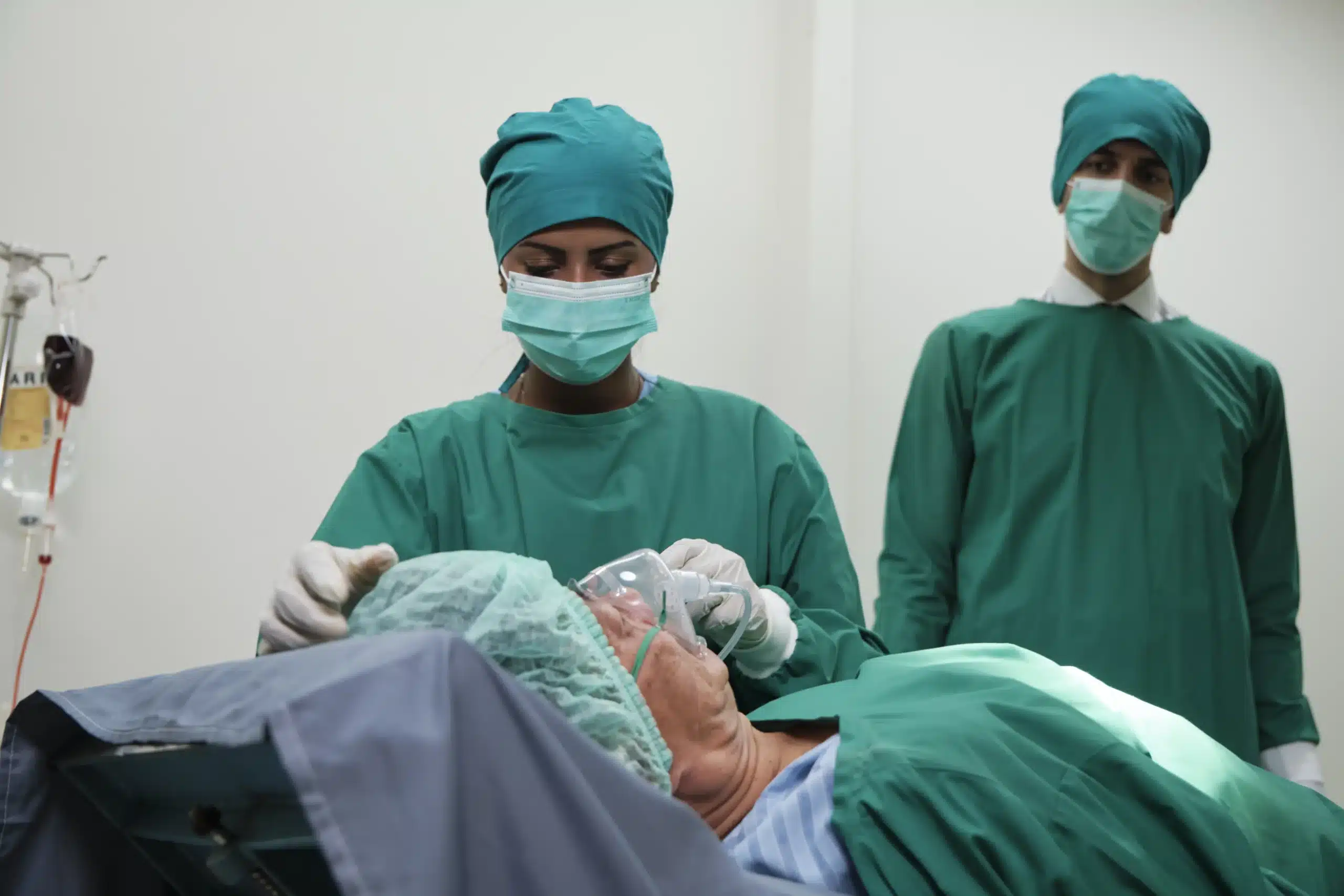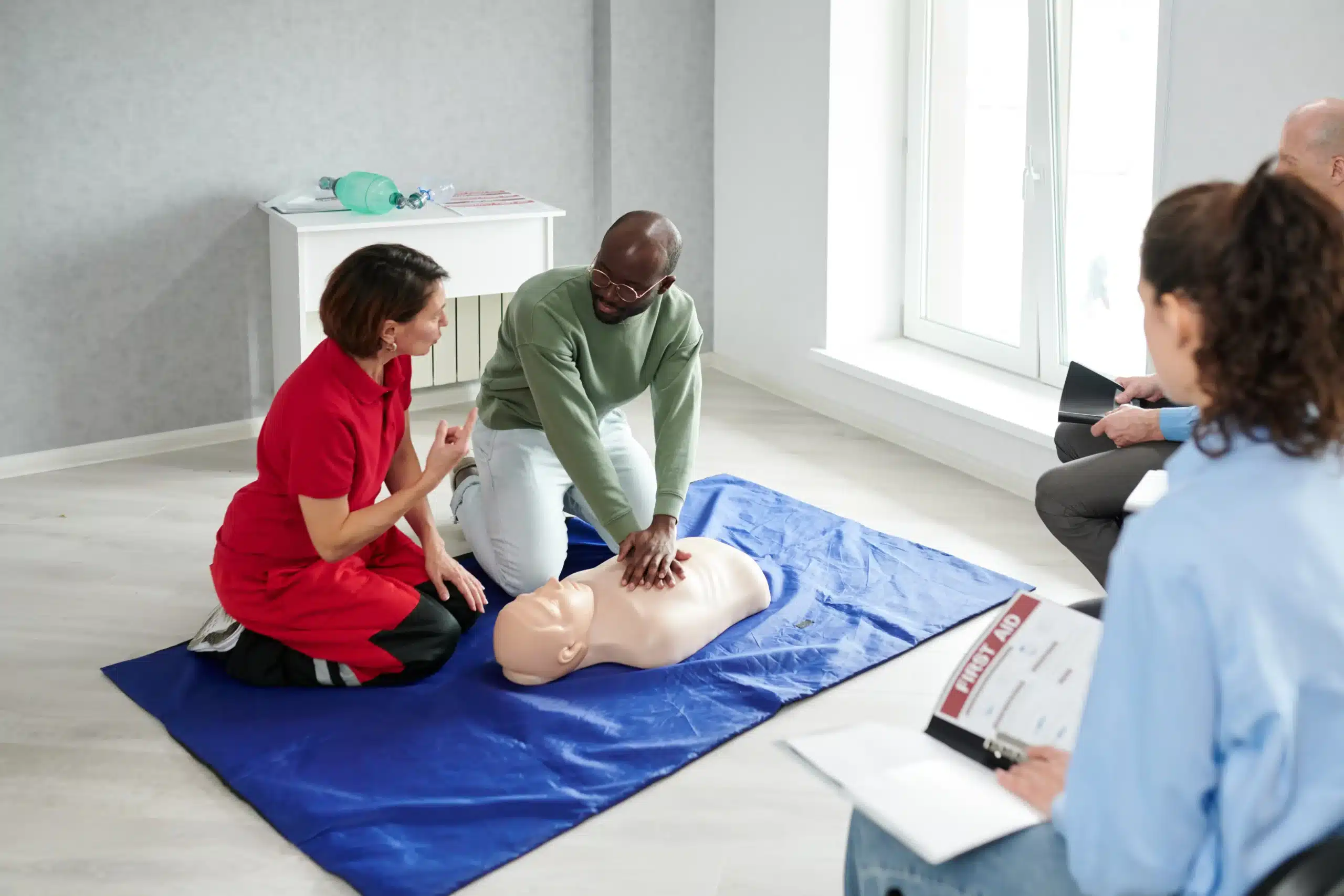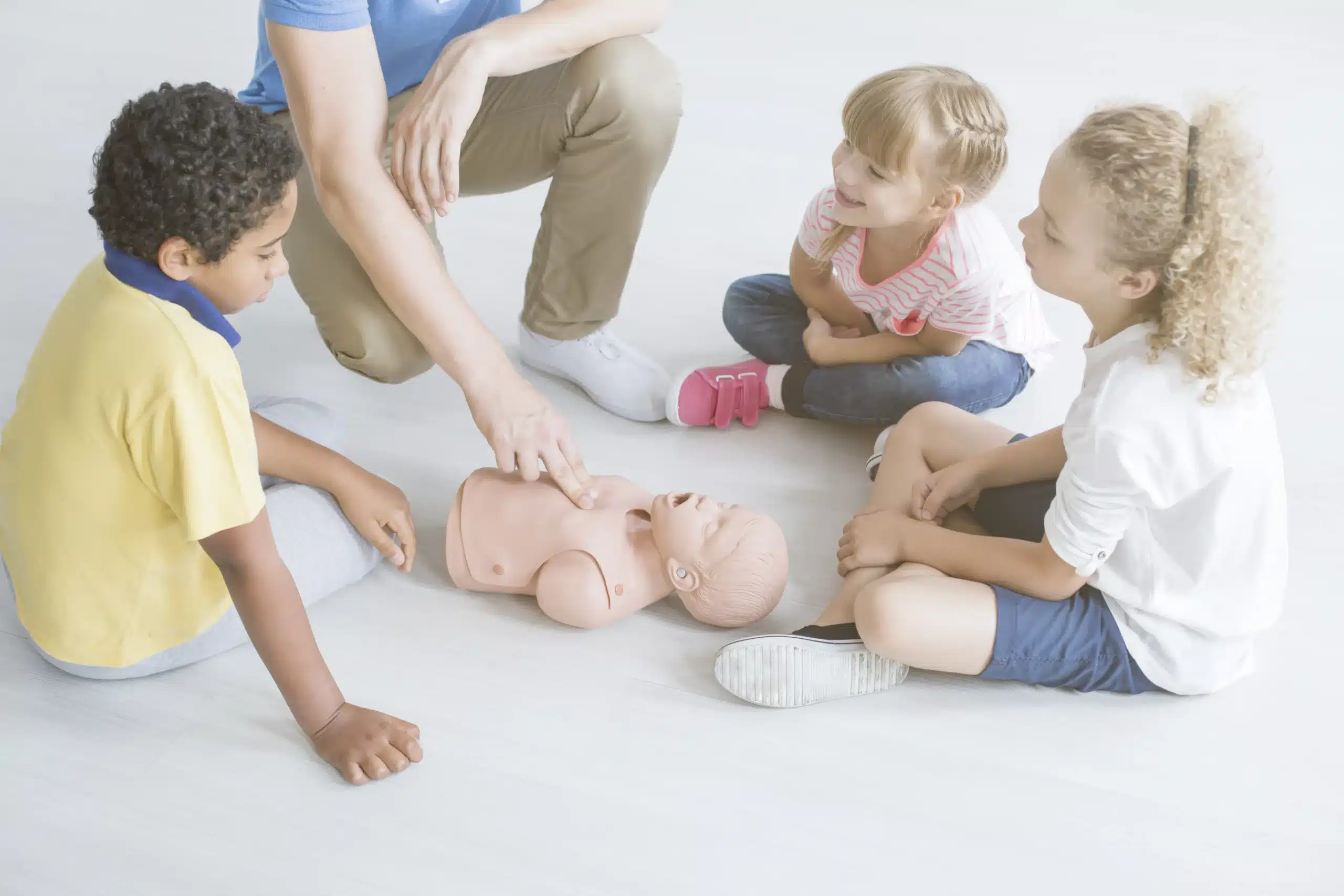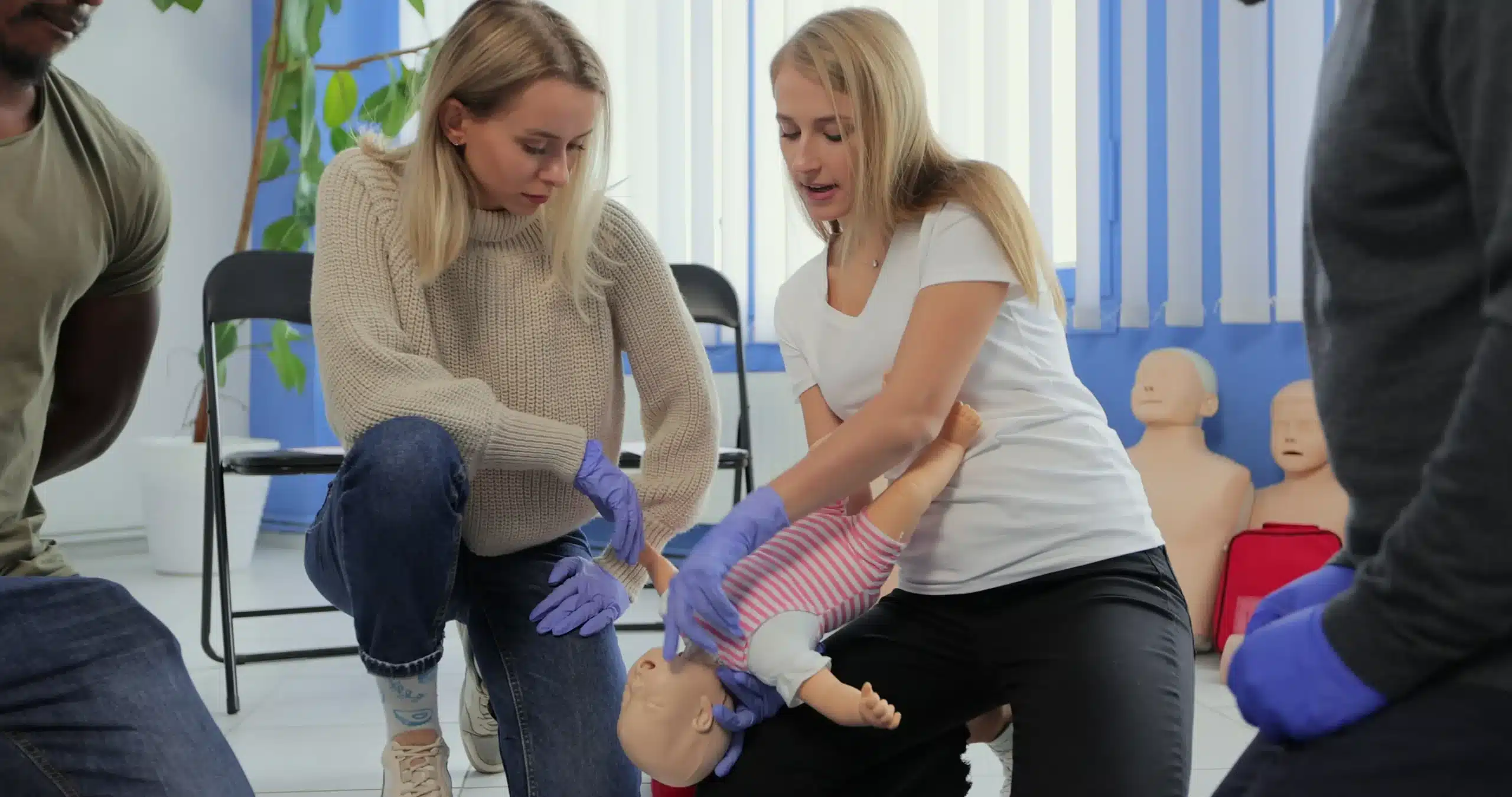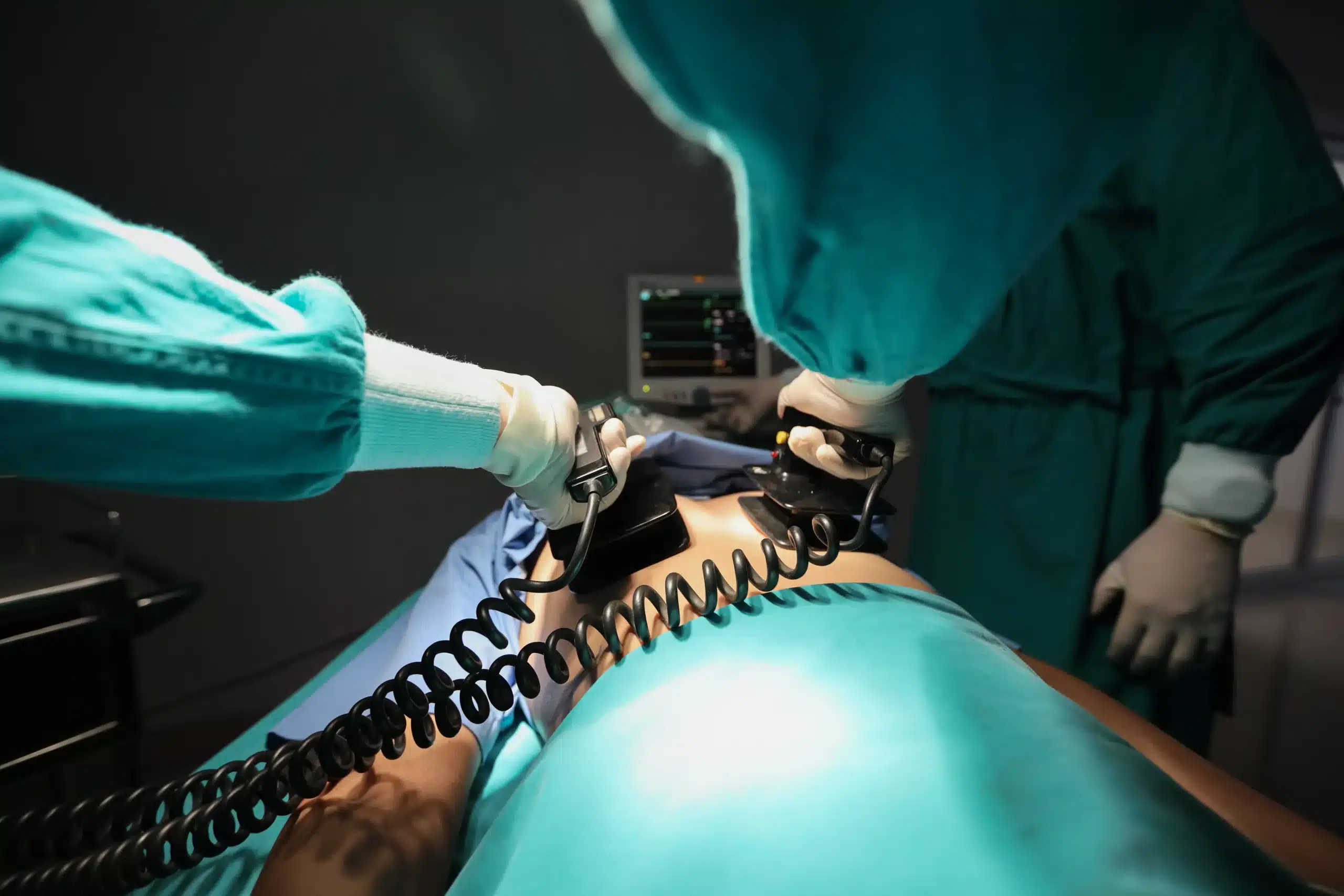Working in healthcare, you know that staying up-to-date with the latest advancements in cardiovascular care is crucial. Whether you’re a doctor, nurse, paramedic, or other healthcare provider, ACLS courses in Dublin offer the advanced training you need to manage complex cardiovascular emergencies. This comprehensive guide will walk you through the essentials of ACLS certification, highlighting reputable course providers, outlining curriculum details, and addressing common enrollment challenges. We’ll also explore the benefits of hands-on training and simulation exercises, ensuring you’re fully prepared to respond confidently and effectively in real-world scenarios.
Key Takeaways
- ACLS builds essential skills for healthcare providers: Mastering advanced techniques beyond basic life support empowers you to manage complex cardiovascular emergencies effectively as part of a coordinated team.
- Dublin offers high-quality ACLS training: Find a reputable provider that matches your learning style and professional goals, considering factors like accreditation, instructor experience, and course structure.
- Thorough preparation ensures ACLS success: Review the required materials, complete pre-course work diligently, and explore supplementary resources to maximize your learning and confidently apply these life-saving skills.
What are ACLS Courses?
ACLS stands for Advanced Cardiovascular Life Support. These courses are designed for healthcare professionals who respond to cardiovascular emergencies, like cardiac arrest and strokes. Think doctors, nurses, paramedics, and other specialized healthcare providers. ACLS training goes beyond basic life support (BLS) skills, equipping you with the knowledge and techniques to manage complex cardiovascular situations. It emphasizes a team-based approach, honing your communication and leadership skills in high-pressure scenarios. The goal? To improve patient outcomes and save lives. The Irish Heart Foundation offers ACLS training designed specifically for healthcare professionals who encounter these serious cardiovascular emergencies.
ACLS courses cover a range of topics, including recognizing and managing cardiac arrest, implementing effective resuscitation techniques, understanding heart rhythms and their implications, and administering appropriate medications. These courses often involve hands-on simulations and case studies, allowing you to practice your skills in a safe and controlled environment. As described by the Royal College of Surgeons in Ireland, these simulations build upon existing BLS skills and incorporate both technical and non-technical skill development. This prepares you to act quickly and confidently during real-life emergencies. St. James’s Hospital also offers ACLS training for providers who lead or participate in resuscitation efforts, both in and out of the hospital.
Top ACLS Course Providers in Dublin
Finding the right Advanced Cardiovascular Life Support (ACLS) course in Dublin depends on your individual needs. Here’s a summary of leading providers in the city:
Irish Heart Foundation
The Irish Heart Foundation offers an ACLS Provider course in Dublin, delivered by ACLS Training Services t/a Code Blue. This two-day course is designed for healthcare professionals who manage serious heart emergencies.
Code Blue
Code Blue provides a two-day ACLS course accredited by both the Irish Heart Foundation and the American Heart Association. This ensures your certification will be valid in over 50 countries. Their curriculum covers CPR, AED use, advanced airway management, rhythm recognition, and medication administration for various cardiac emergencies.
St. James’s Hospital
St. James’s Hospital offers both Basic Life Support (BLS) and Advanced Cardiac Life Support (ACLS) training. These courses are available to their staff and other healthcare professionals, including doctors, dentists, nurses, and pharmacists.
Safety Training Seminars
Safety Training Seminars provides an ACLS course for healthcare providers involved in managing cardiopulmonary arrest and other cardiovascular emergencies.
Royal College of Surgeons in Ireland (RCSI)
RCSI partners with the Irish Heart Foundation to offer the American Heart Association’s ACLS provider course. This course uses simulated scenarios with deteriorating patients to build upon strong BLS skills.
Course Structure and Duration
Understanding the structure and time commitment of an Advanced Cardiac Life Support (ACLS) course is essential when choosing the right program. Let’s break down the typical formats and what you can expect.
Two-Day In-Person Sessions
Many ACLS courses follow a traditional two-day, in-person structure. This immersive format allows for direct interaction with instructors and hands-on practice with your peers. Providers like Code Blue offer this type of two-day intensive course, often accredited by organizations like the American Heart Association or the Irish Heart Foundation. This concentrated schedule works well for those who prefer focused, face-to-face learning.
Online and Hybrid Options
For those seeking more flexibility, online and hybrid courses are becoming increasingly popular. A hybrid program, like the HeartCode ACLS course offered by some institutions such as the NIH Clinical Center, blends online learning with in-person skills sessions. You’ll typically complete the cognitive portion online, at your own pace, then attend a shorter in-person session to demonstrate your practical skills. This blended approach offers a convenient way to fit the training into a busy schedule. Purely online options may also be available for recertification, depending on the provider.
Curriculum Overview
Regardless of the format, the core curriculum of an ACLS course remains consistent. You’ll cover a comprehensive range of topics essential for managing cardiac emergencies. Expect to learn everything from basic CPR and AED use to more advanced procedures like airway management, recognizing and treating cardiac rhythms, administering medications, and managing a variety of cardiac arrest scenarios. Many courses also incorporate realistic simulations of deteriorating patients. This practical experience helps build upon your existing BLS skills and prepares you to function effectively as part of a cardiac arrest team. You’ll practice both technical and non-technical skills, focusing on clear communication and teamwork in high-pressure situations. For a more detailed look at course content, you can explore resources like those available from Code Blue.
Enrollment Qualifications and Prerequisites
Before you sign up for an Advanced Cardiovascular Life Support (ACLS) course in Dublin, make sure you meet the qualifications. Understanding the prerequisites will help you get started faster.
Basic Life Support (BLS) Certification
You’ll need a current Basic Life Support (BLS) certification to enroll in an ACLS course. This foundational training confirms you have the basic life-saving skills needed for ACLS training. Think of it as the first step in your advanced life support journey. Code Blue clearly states this requirement.
Professional Requirements
ACLS Provider courses target healthcare professionals who respond to patient resuscitation, both in and out of hospitals. This typically includes doctors, nurses, paramedics, and other healthcare providers who may lead or participate in these situations. If you’re a healthcare provider involved in these critical scenarios, an ACLS course is designed for you. St. James’s Hospital echoes this sentiment in their ACLS course description.
Pre-Course Assessments
Most ACLS courses require pre-course work. You’ll likely complete a multiple-choice questionnaire and a preparation checklist, usually found in the ACLS provider manual. These assessments, often mentioned by providers like Code Blue, help make sure you’re prepared for the course material and ready to participate actively. It’s a good idea to familiarize yourself with these requirements beforehand.
ACLS Course Costs
Understanding the financial commitment is an important step when considering an ACLS course. Let’s break down the typical costs associated with ACLS training in Dublin.
Course Fees
ACLS course fees in Dublin differ depending on the training provider and course format. For example, the Irish Heart Foundation offers ACLS Provider courses, and their website lists current pricing. Another reputable provider, Code Blue, offers a two-day ACLS course accredited by both the Irish Heart Foundation and the American Heart Association. Contacting each provider directly ensures you have the most up-to-date pricing information.
Additional Expenses
Beyond the course fee, factor in potential extra costs. You might need to purchase the ACLS provider manual and other required materials. The Royal College of Surgeons in Ireland (RCSI), for instance, requires their manual and online access to American Heart Association learning materials for pre-course preparation. Inquire directly with the provider about required materials and their associated costs.
Potential Discounts
Look for potential discounts to make your ACLS training more affordable. Some providers, like St. James’s Hospital, may offer discounted rates for group bookings or healthcare professionals affiliated with certain organizations. Contact the training provider to ask about any special offers. A little research can lead to significant savings.
Certification and Validity
After completing your ACLS course, you’ll receive a certification card. It’s important to understand the validity and international recognition of this certification, especially if you plan to work or volunteer abroad.
International Recognition
Many ACLS courses in Dublin, such as those offered by Code Blue, are accredited by internationally recognized organizations like the American Heart Association and the Irish Heart Foundation. This often means your certification is valid in many countries, which can broaden your professional opportunities. If you have specific locations in mind, confirm the international validity of the certification with your course provider before you enroll.
Two-Year Validity Period
ACLS certifications are typically valid for two years. This timeframe allows you to practice your skills and stay current with advancements in emergency cardiovascular care. Providers like the Irish Heart Foundation clearly state the two-year validity in their course information. Mark your calendar so you know when to recertify.
Renewal Process
You’ll need to complete a refresher course to renew your ACLS certification before it expires. This process, often called recertification, ensures your skills and knowledge remain sharp. Staying on top of your recertification is key to maintaining your qualifications and providing excellent patient care. Many training centers offer resources and guidance on maintaining your ACLS certification. As your recertification date approaches, check with your original course provider or other reputable institutions for available renewal courses.
What Makes Dublin ACLS Courses Stand Out?
Dublin has become a center for Advanced Cardiovascular Life Support (ACLS) training, drawing healthcare professionals from all over Ireland and beyond. What distinguishes these courses? Several key factors contribute to the quality and reputation of Dublin’s ACLS programs.
Experienced Instructors
Dublin ACLS courses feature instructors with extensive experience, often practicing healthcare providers themselves. These instructors share real-world insights and practical knowledge, enriching the learning experience. For instance, Code Blue emphasizes its team of seasoned professionals at their training center. This firsthand experience translates into top-notch instruction and valuable mentorship for students.
Comprehensive Curriculum
ACLS courses in Dublin offer a thorough curriculum covering a broad spectrum of essential topics. From basic life support (BLS) and AED operation to advanced airway management and rhythm identification, the courses prepare participants to handle various cardiac emergencies. The Royal College of Surgeons in Ireland details its comprehensive ACLS curriculum, which builds on existing BLS skills and incorporates both technical and non-technical skill development. Code Blue’s ACLS program also addresses medication administration and other critical aspects of cardiac emergency response.
Hands-On Training and Simulations
A key aspect of Dublin ACLS courses is the focus on hands-on training and simulations. These simulations, often called “Megacode,” create a realistic learning environment where participants can practice their skills in a safe and controlled setting. Code Blue incorporates these practical exercises into its ACLS training, while Irish Heart highlights the value of active participation in simulated cases to improve the management of cardiopulmonary arrest and other cardiovascular emergencies. This practical approach helps students apply their knowledge and build confidence in their abilities.
Flexible Scheduling Options
Understanding the demands on healthcare professionals’ time, Dublin ACLS course providers offer flexible scheduling. Many providers, such as Irish Heart, post scheduled courses online, enabling participants to plan their training. The availability of Continuing Professional Development (CPD) or Continuing Education Units (CEU) credits for Code Blue’s programs offers additional benefits for professionals looking to maintain their certifications and advance their careers. This flexibility ensures professionals can access quality training without disrupting their work commitments.
Prepare for Your ACLS Course
Getting ready for your ACLS course involves familiarizing yourself with the materials, understanding the pre-course requirements, and exploring available online resources. This preparation will set you up for success in the course and your professional practice.
Study Materials and Resources
You’ll receive an ACLS Provider Manual and an online access key to the American Heart Association’s learning platform. These resources are essential for completing the mandatory pre-course work. The manual covers key algorithms, protocols, and pharmacology information. The online platform provides interactive modules, practice tests, and other valuable tools. Make sure you take advantage of both to build a solid foundation. For example, you can purchase the ACLS Provider Manual directly from the American Heart Association.
Pre-Course Expectations
Before your ACLS course, complete the pre-course MCQ and preparation checklist within your ACLS Provider Manual. This pre-course work ensures you have a basic understanding of core concepts before the in-person training. The MCQ assesses your baseline knowledge, while the checklist guides you through essential preparations. Completing these tasks demonstrates your commitment and allows instructors to tailor the training. Providers like Code Blue highlight the importance of this preparation.
Online Learning Platforms
Online learning platforms offer a convenient way to supplement your ACLS preparation. Websites like Health Ed Solutions provide additional resources and practice opportunities. These platforms can be particularly helpful for visual learners or those who prefer self-paced study. While the provider manual and the AHA’s online platform are your primary resources, supplemental platforms can offer a different perspective and enhance your comprehension.
Overcome ACLS Course Enrollment Challenges
Getting into an ACLS course can sometimes feel like a challenge, but with a little planning and flexibility, you can find the right fit. Here’s a look at common hurdles and how to overcome them:
Limited Course Availability
ACLS courses are in high demand. Because the ACLS Provider Course is designed for healthcare providers involved in resuscitation, many professionals need this training. This concentrated need can lead to limited spots and scheduling conflicts. The best way to tackle this is to plan ahead. Check course schedules early and register as soon as possible. Consider weekday versus weekend options, and if your schedule is truly packed, explore online or hybrid courses that offer more flexibility. If your first choice is full, get on a waiting list or check with other providers.
Geographical Constraints
While ACLS training is essential for healthcare providers managing cardiopulmonary arrest and other cardiovascular emergencies, finding a course nearby isn’t always easy. If you’re outside a major city, you might face longer travel times or limited local options. Consider expanding your search area. Online or hybrid courses can be a great solution, allowing you to complete some or all of the coursework remotely. If an in-person course is necessary, factor travel time and expenses into your decision.
Balancing Work and Training
Juggling work with training, especially in demanding healthcare roles, can be tricky. Many providers, from GPs and dentists to nurses and pharmacists, need ACLS certification, but finding the time can be tough. Look for courses designed with working professionals in mind. Evening, weekend, or accelerated courses can help you fit training around your work schedule. Talk to your employer about professional development—they may offer support for training expenses or scheduling adjustments.
Choose the Right ACLS Course
Finding the right Advanced Cardiovascular Life Support (ACLS) course requires a little research. Think about your learning style, your schedule, and what each course provider offers. This section breaks down key factors to help you make the best choice for your ACLS certification.
Compare Provider Offerings
Different providers have different strengths. For example, some providers, like the Irish Heart Foundation, may focus on specific demographics or offer courses alongside other training programs. Others, such as Code Blue, might emphasize their American Heart Association accreditation and international recognition. Reviewing what each provider offers helps you choose a course aligned with your goals. Check if hospitals like St. James’s Hospital offer courses, as they sometimes cater to healthcare professionals within their network.
Consider Your Schedule and Learning Style
Your schedule and learning preferences play a big role in your course selection. Some courses are intensive, two-day programs, while others might offer more flexible scheduling or blended learning. If hands-on practice is your style, look for a course with simulations. If you prefer independent study, check if the course includes online resources. The Royal College of Surgeons in Ireland, for instance, might offer online learning platforms alongside in-person training. Consider what works best for you to maximize your learning experience.
Make an Informed Decision
Before you sign up, understand the course requirements. Some providers, like Code Blue, have pre-course quizzes, required participation, and final exams. Make sure you know the pass rate and what’s involved in getting certified. Also, check what materials are included. Some courses provide manuals and access to online resources, helpful for preparation and review. Knowing these details upfront will help you feel prepared and confident going into your ACLS training.
Related Articles
- ACLS Renewal in Mountain House: Your Complete Guide – Livermore CPR Classes
- AHA ACLS Classes in Livermore, CA – Livermore CPR Classes
- American Heart Association Courses – Livermore CPR Classes
- BLS Classes in Dublin: Your Complete Guide – Livermore CPR Classes
- CPR Certification in Dublin: Your Guide – Livermore CPR Classes
Frequently Asked Questions
What exactly will I learn in an ACLS course? You’ll gain skills in recognizing and managing life-threatening heart rhythms, providing advanced airway management, understanding pharmacology related to cardiovascular emergencies, and leading a team during a resuscitation event. It builds upon the foundational skills learned in BLS, focusing on a more comprehensive approach to patient care.
How do I know if an ACLS course is right for me? If you’re a healthcare provider, such as a doctor, nurse, or paramedic, regularly involved in emergency responses, particularly those involving cardiovascular issues, then an ACLS course is likely essential for your professional development. It’s also relevant for those aspiring to leadership roles in emergency medical teams.
What’s the difference between BLS and ACLS certification? BLS certification covers basic life-saving skills, like CPR and using an AED. ACLS certification builds on this foundation, equipping you with advanced techniques for managing complex cardiovascular emergencies. Think of BLS as the essential first step, while ACLS provides the specialized knowledge and skills for more critical situations.
How long is an ACLS certification valid, and how do I renew it? ACLS certifications are typically valid for two years. To renew, you’ll need to complete a recertification course before your current certification expires. This ensures your skills and knowledge are up-to-date.
What if I have scheduling conflicts or live far from training centers? Many providers understand these challenges and offer flexible options like online or hybrid courses, weekend classes, and even accelerated programs. Explore different providers to find a format that fits your needs and circumstances. Don’t hesitate to contact providers directly to discuss your specific situation.
